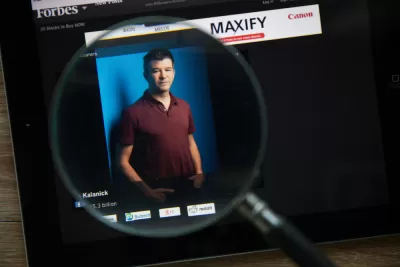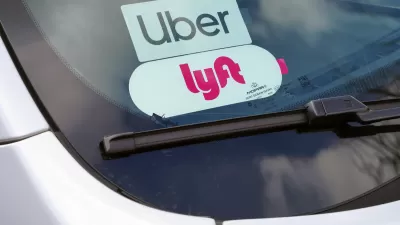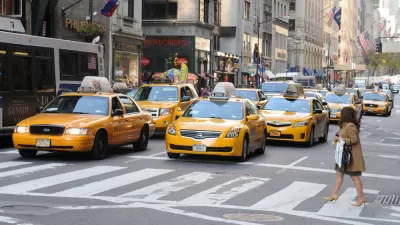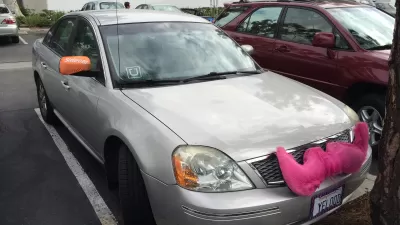A new book traces the path of the influential mobility company from its earliest days and through its many organizational and leadership ups and downs.

Mike Isaac’s new book, Super Pumped: The Battle for Uber, looks at the history of Uber and former CEO Travis Kalanick. In an interview with Andrew Small, Isaac discusses Uber’s start as a transportation company, its impact on cities and planning, and Kalanick’s ultimate fall from the corporate pinnacle.
Small asks Isaac about Uber’s use of Greyball, the program Uber used to avoid authorities in cities where it was not permitted to operate, and how city officials have responded:
A lot of cities have learned a lesson about how much to trust a startup that’s just deciding to barge in. When companies tried to roll out scooters really rapidly in San Francisco, the transportation department immediately slapped them down and threatened to fine companies that pushed through. There are a lot of sore spots from how Uber flooded the zone. City transportation officials don’t want to go through that again. They just got completely railroaded.
Uber’s vision also always went far beyond just disrupting transportation, and transit was in the crosshairs, says Isaac:
Travis wanted to compete for most, if not all, of transportation. I don’t think that he would have been satisfied with saying "We’re just going to get so many people, but then just leave existing ridership on public transportation." I think they wanted to go for it. That’s why they did those carpooling options and shuttles. That’s problematic in and of itself, because it creates a cycle in which [transit] ridership goes down, perhaps funding goes down, and some fundamental public services start to see problems.
Small’s full interview with Isaac goes into a host of other Uber issues, including the toxic corporate culture, its relationship to other companies such as Google and Lyft, and its future as it continues to lose billions of dollars.
FULL STORY: What Uber Did

Study: Maui’s Plan to Convert Vacation Rentals to Long-Term Housing Could Cause Nearly $1 Billion Economic Loss
The plan would reduce visitor accommodation by 25,% resulting in 1,900 jobs lost.

North Texas Transit Leaders Tout Benefits of TOD for Growing Region
At a summit focused on transit-oriented development, policymakers discussed how North Texas’ expanded light rail system can serve as a tool for economic growth.

Using Old Oil and Gas Wells for Green Energy Storage
Penn State researchers have found that repurposing abandoned oil and gas wells for geothermal-assisted compressed-air energy storage can boost efficiency, reduce environmental risks, and support clean energy and job transitions.

How Madison’s Tree Planting Efforts Are Growing a Healthier Community
Madison’s annual tree planting initiative is enhancing environmental resilience, public health, and community livability by adding 1,400 carefully selected trees citywide, with strong community and institutional support for urban forestry.

Texas State Bills Could Kill Transit Funding in Dallas, Austin
State lawmakers could pull funding from the state’s largest transit agency and the ambitious Project Connect, a voter-approved transit project in Austin.

Opinion: DC Encampment Sweeps Hide, but Don’t Solve, Homelessness
President Trump recently ordered the clearing of encampments built by unhoused people on federal land in Washington, D.C.
Urban Design for Planners 1: Software Tools
This six-course series explores essential urban design concepts using open source software and equips planners with the tools they need to participate fully in the urban design process.
Planning for Universal Design
Learn the tools for implementing Universal Design in planning regulations.
Ascent Environmental
Borough of Carlisle
Institute for Housing and Urban Development Studies (IHS)
City of Grandview
Harvard GSD Executive Education
Toledo-Lucas County Plan Commissions
Salt Lake City
NYU Wagner Graduate School of Public Service





























